March 2021 is B Corp Month – four weeks dedicated to celebrating B Corp businesses and what it means to be certified. Here, we list every food & drink company that has gained the status since this time last year – and find out what contributed to the achievement.
To be certified as a B Corp, businesses must undergo a B Impact Assessment and achieve a B Impact Score of more than 80 out of a possible 200. Overall B Impact Scores are calculated by combining the scores from five Impact Areas: governance, workers, community, environment and customers.
Amamus
Certified since: April 2020
B Impact Score: 83.1
View this post on Instagram
Amamus isn’t your average coffee supplier. Founded by husband-and-wife team Tim and Binny Wookey, the Lymington-based company provides high-quality coffee and coffee machines to businesses using “a bespoke, partnership approach”. It also runs a coffee club – So This Is Coffee – which delivers speciality blends to consumers’ homes in plastic-free and compostable packaging.
Its mission is to tackle the “social, economic and environmental problems that threaten the availability of coffee in the future”, which means only sourcing speciality coffees for which workers are paid a fair wage. It also produces zero carbon emissions in scopes one and two, and is currently working on achieving this in scope three.
According to the business, “this clear vision, combined with our commitment to nurturing our brilliant team and positive relationships with suppliers and clients and a low environmental impact, is why we met the criteria for B Corp certification”.
Borough Broth Co
Certified since: January 2021
B Impact Score: 81.1
View this post on Instagram
Borough Broth Co was created in 2015 by founder Ros Heathcote, after she found even the most premium bone broths on the market were, as she puts it, “full of nasties”. The brand now produces a range of broths using only locally sourced, organic and free-range ingredients. It achieved certification at the start of this year for a number of reasons, including paying its staff the London Living Wage, supporting organic farmers and saving unwanted ingredients from landfill. It also produces ”almost no food waste”, as any wastage goes to compost or bio-fuel.
Bol Foods
Certified since: March 2021
B Impact Score: 83.2
View this post on Instagram
Over the past few years, Bol has been gradually updating its ranges of meal pots, soups and drinks to be better for the planet. It first removed chicken and fish from its products in 2017, ditched dairy a year later and is now 100% plant-based, a move which saves “millions of litres of water, tonnes of CO2 emissions and thousands of square meters of farmland very year”, it says. It is also “continuously” working to reduce and remove plastic from its packaging, recently debuting products in bio-plastic, glass and foil containers. The brand does its bit for the community too, by partnering with charities, donating meals to soup kitchens and homeless shelters and encouraging charity work within its team.
BrewDog
Certified since: February 2021
B Impact Score: 81.8
View this post on Instagram
Since its inception in 2007, craft beer behemoth BrewDog has always strived to be a force for good. As well as being outspoken on climate issues, it acts on them too: it recently became the world’s first carbon negative brewer by planting 2,000 acres of forest near its base in the Scottish Highlands. It also puts people at the heart of its business, giving 10% of its profits every year to its staff and paying the living wage.
Bruichladdich Distillery Co
Certified since: May 2020
B Impact Score: 83.2
View this post on Instagram
Located on the remote Hebridean Island of Islay, Bruichladdich Distillery Co is the producer of Bruichladdich, Port Charlotte and Octomore single malt whiskies. Employing 80 members of staff on the island and a further 23 in Glasgow, the distillery is Islay’s largest employer and prides itself on its “people-centric policies”, which include a bonus scheme, a training & development programme and health & wellbeing initiatives such as a cycle to work scheme. The company is also tackling its environmental impact by switching to green energy and installing a hot waste water system, which uses the heat from its condensers to keep its buildings warm. This year, the distillery has turned its attention to unnecessary packaging with its One Tin Lighter campaign, which sees it remove tins from its products as a default. Although tins are still available to customers that want them, they are being encouraged to go without in an effort to reduce carbon emissions.
Camden Town Brewery
Certified since: December 2020
B Impact Score: 91.8
View this post on Instagram
Shortly before being integrated into owner AB InBev’s wider business in January this year, Camden Town Brewery was certified as a B Corp in December 2020. One reason for Camden’s certification is its focus on people – it prides itself on celebrating “individuality, realness and diversity”, pays the London Living Wage and is Disability Confident Committed.
Charlie Bigham’s
Certified since: August 2020
B Impact Score: 83.2
Ready meal manufacturer Charlie Bigham’s received its certification in the midst of the pandemic last year, following efforts to help the environment, the community and its own workforce. The company has recently upped recycling capacity and installed more than 900 solar panels on the roof of its Somerset kitchen, and has partnered with food charities such as City Harvest to donate meals to people in need. It is also transparent with its gender pay to ensure all its staff are paid fairly. The current gender pay gap at the brand is –3%, meaning women earn more on average than men.
The Collective
Certified since: July 2020
B Impact Score: 80.3
View this post on Instagram
The Collective’s mission is simple: to be the most sustainable dairy company in the world. Recent environmental efforts from the brand include launching a pouch recycling scheme for its Suckies range, making its black plastic lids recyclable by adding a detectable pigment and removing film lids and spoons from its 150g tubs. It has also pledged to donate a minimum of 0.1% of its revenue to charity annually, last year partnering with the Lyric Theatre and The Prince’s Trust. Employees at the brand can also get involved with charity work through a newly launched volunteering programme.
Cully & Sully
Certified since: July 2020
B Impact Score: 80.9
Cully & Sully is one of only three Irish food & drink brands to be B Corp certified. The manufacturer of pies, soups, broths and risottos regularly gives back to its community, and in March last year delivered donations of its products to ‘souperhero’ key workers across Ireland. It is also a member of Bord Bia’s Origin Green programme, which means it is committed to sustainable sourcing, promoting biodiversity and reducing its environmental impact.
Danone Waters
Certified since: December 2020
B Impact Score: 95.7
View this post on Instagram
Fmcg giant Danone recieved B Corp certification for its waters arm at the end of last year after scoring highly in the ‘workers’ section of the assessment. The company offers all staff shares in the business and gives employees unlimited volunteering time to give back to the community. It also supported charities and communities during the first wave of the pandemic through a virtual volunteering programme. On top of this, Danone Waters has upped its sustainability efforts, committing to use 100% recycled content across its Evian and Volvic bottles by 2025.
Dark Woods Coffee
Certified since: June 2020
B Impact Score: 99.6
View this post on Instagram
Based on the edge of the Pennines in rural West Yorkshire, Dark Woods Coffee is “deeply entrenched” in its local community and achieved its highest score in this area of the assessment. Dark Woods also gives back to communities further afield, by funding development projects at origin. For example, all proceeds from the sale of its Café Femenino Peru coffee throughout March, April and May this year will be donated to the Café Femenino Foundation, which supports coffee-growing communities in Peru. The company is also reducing the environmental impact of its operations through solar panels, electric vehicles and compostable or recyclable packaging.
Dash Water
Certified since: October 2020
B Impact Score: 81.7
View this post on Instagram
For a brand whose mission is to save tonnes of wonky fruit & veg from going to waste by turning them into flavoured sparkling water, it’s unsurprising that Dash scored highly in the environmental impact section of its B Corp assessment. However, this was not just for its efforts on food waste. The brand was also rewarded for its sustainable packaging choices, as it uses only aluminium cans and glass bottles, no plastic.
Dear Green Coffee Roasters
Certified since: December 2020
B Impact Score: 84.2
View this post on Instagram
It’s all about traceability for Glasgow-based coffee company Dear Green. The business sources all its coffee through direct trade links to sustainable farms and personally visits each coffee farm. This allows it to form and maintain relationships with importers, exporters and producers, as well as pay a premium above the commodity rate. The company also says it is “instinctive” when it comes to the environment. As well as reducing, reusing, recycling and composting at its own premises, it offers biodegradable packaging for consumers and reusable buckets of bulk coffee for its wholesale customers.
Dr Will’s
Certified since: November 2020
B Impact Score: 84.1
View this post on Instagram
Dr Will’s markets itself as a condiments brand “with a dollop of common sense”. It was founded by a real doctor, Will Breakey, as an alternative to other sugar-filled sauces on the market. Its products are made from all natural ingredients, sourced as locally as possible, and are sweetened naturally with tomato, dates and apples.
Equinox
Certified since: September 2020
B Impact Score: 91.3
View this post on Instagram
Organic kombucha brand Equinox is passionate about community and committed to giving back, both locally and further afield. For example, it helps its community in the Calder Valley, West Yorkshire by employing mostly local people: 80% of its current employees live near to the brewery. It is also working on developing social programmes to support communities in the locations of its other factories.
Freestar
Certified since: June 2020
B Impact Score: 88.4
View this post on Instagram
Freestar became the first alcohol-free beer brand to win B Corp certification in June last year. The brand, which says sustainability is an “integral part” of the business, achieved its highest score in the environmental impact category of the assessment. Freestar says its beers are produced using 80% less water and create 70% less waste than other brands, and is committed to being a net zero carbon emissions business by 2030.
Flawsome
Certified since: February 2021
B Impact Score: 87.3
View this post on Instagram
Flawsome, which claims to be the world’s first carbon negative juice brand, is tackling food waste by turning “imperfect” produce into healthy drinks in plastic-free packaging. It also supports farmers by paying them a fair price for their fruit & veg, which would otherwise have gone to waste. To date it has saved almost 23 million pieces of fruit from landfill – and it’s not stopping there. In the next three years, it plans to save 6,000 tonnes of produce and donate one million bottles to charities such as FareShare.
Fuel10k
Certified since: March 2021
B Impact Score: 86.8
View this post on Instagram
Breakfast brand Fuel10k describes its B Corp certification this month as “recognition that we’re on a journey” towards being better for people and the planet. So far on its journey, Fuel10k has lowered the sugar content of its porridge pots by 20% and removed 12 tonnes of plastic from the range per year. What’s more, during the pandemic it has donated food to both NHS workers and vulnerable people through a partnership with FareShare.
Graze
Certified since: February 2021
B Impact Score: 84.3
View this post on Instagram
Along with its owner Unilever, which is aiming for net zero emissions by 2039, recently certified snacking brand Graze is setting it sights on sustainability. To help towards its pledge to be carbon neutral by 2030, the brand’s factory and bakery are now powered by 100% carbon neutral wind energy. It has also joined forces with Ethical Trading Initiative Norway to improve social and environmental practices in its supply chains. And that’s not all: Graze is continuing to make its snacks healthier and reduce its waste and plastic use.
Hattiers Rum
Certified since: November 2020
B Impact Score: 80.5
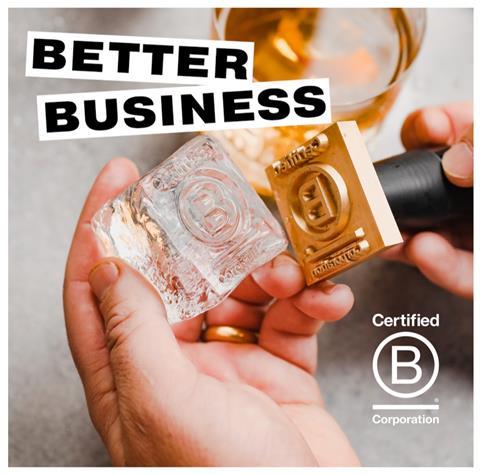
Towards the end of last year, Hattiers became the first British B Corp rum, and the second in the world. The Devon company chooses not to outsource its warehousing and bottling, so only employs staff within the county. It has also been plastic-free since its inception in 2017, delivering online orders in “simple and sustainable” cardboard packaging from Flexi-Hex instead of plastic.
Jude’s
Certified since: August 2020
B Impact Score: 82.2
View this post on Instagram
A few months after being certified as a B Corp, Hampshire-based family business Jude’s announced it had become Britain’s – and “possibly the world’s” – first carbon-negative ice cream company. And its so-called “sustainability journey” doesn’t stop there, as it has also pledged a 43% reduction in carbon intensity by 2030. Jude’s is also committed to helping its community, particularly children and young people, and runs educational programmes with local schools at its dairy. It also supports charities in its local area, such as Naomi House Children’s Hospice near Winchester, and has donated more than £250,000 to date.
Love Struck
Certified since: November 2020
B Impact Score: 80.1
View this post on Instagram
After starting life as a stall in London’s Borough Market in 2004, Love Struck has gone on to become an international business, supplying its frozen, zero-waste smoothie, milkshake and soup mixes to more than 6,000 outlets worldwide. Its sustainability initiatives include supply chain transparency, recycled and fully recyclable plastic packaging, box insulation made from waste denim and planting trees with Creating Tomorrow’s Forests.
Oddbox
Certified since: June 2020
B Impact Score: 93.1
View this post on Instagram
Each year in the UK, three million tonnes of fruit & veg are wasted before they even leave the farm because of cosmetic imperfections. Oddbox is on a mission to change this, rescuing produce from farmers and delivering it to consumers in London and south east England. To date, the company has saved more than 13,000 tonnes of produce, resulting in 1,519 million litres of water being saved and 15,365 tonnes of carbon emissions prevented. It is currently looking to expand to nationwide delivery.
Origin Coffee
Certified since: July 2020
B Impact Score: 81.9
View this post on Instagram
Ethical sourcing is the ‘cornerstone’ of Origin Coffee. The business uses a direct trade model to source the finest speciality coffee, while ensuring its producers are paid fairly and its supply chain is “socially and environmentally sustainable”. As well as paying frequent visits to its farmers in locations such as Nicaragua and Colombia, it is also transparent with its progress closer to home. It publishes regular environmental impact reports, showing progress on sustainability at its roastery in Cornwall, and keeps consumers in the loop on its ever-evolving packaging choices.
Plenish
Certified since: November 2020
B Impact Score: 92.6
View this post on Instagram
When producing its plant-based juices, shots and milk alternatives, Plenish is committed to having a minimal environmental impact, from the sourcing of its ingredients all the way to the finished product. The brand only works with organic farmers who grow and harvest their produce sustainably. It conducts full life cycle analyses on its key products to understand and address their environmental impacts. It also offsets 110% of the carbon emissions produced in its supply chain, making it a “climate positive company” and one of 400 brands in the world to be certified by the UN Climate Neutral Now Initiative.
Riverford Organic Farmers
Certified since: September 2020
B Impact Score: 124.6
View this post on Instagram
Organic veg box company Riverford Organic Farmers entered B Corp’s stable of accredited businesses in September 2020 with the second-highest B Impact Score to date, 124.6 (Divine Chocolate is in first place with a score of 127.1). The company ranked highly in the ‘workers’ section of the assessment thanks to its employee ownership structure and its health, safety and wellness standards. Its organic farming and sourcing practices, as well is efforts to make its packaging more sustainable, also contributed to its score.
Rubies in the Rubble
Certified since: May 2020
B Impact Score: 80.9
View this post on Instagram
Startup Rubies in the Rubble rescues imperfect produce destined for landfill and transforms it into a range of ketchups, mayos and relishes. In doing so, it has so far saved more than 350,000kg of produce and prevented nearly 300,000kg of carbon emissions. The brand also scored highly in the ‘workers’ section of its assessment, thanks to its equal opportunites hiring policy, health & wellbeing initiatives and chances for career development.
Strong Roots
Certified since: January 2021
B Impact Score: 83.2
View this post on Instagram
Frozen brand Strong Roots claimed a first for an Irish plant-based company when it achieved B Corp certification at the start of this year. It follows recent moves to make its packaging more sustainable, including moving three of its burger products from plastic into cardboard packaging. It has also been working to tackle food poverty by donating meals to FareShare, and recently launched its Make Veg Poverty History campaign.







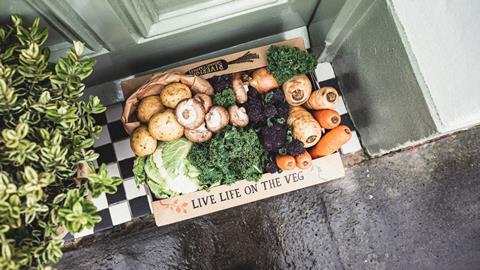
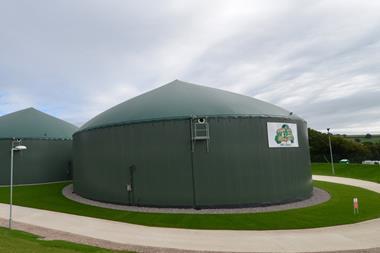
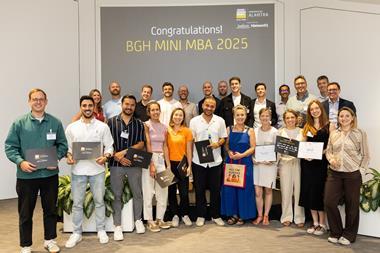
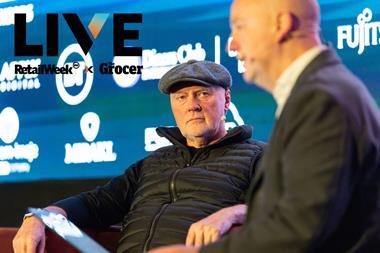
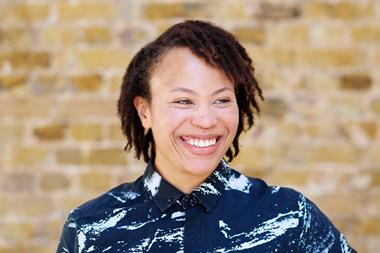








No comments yet